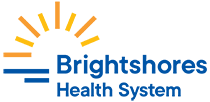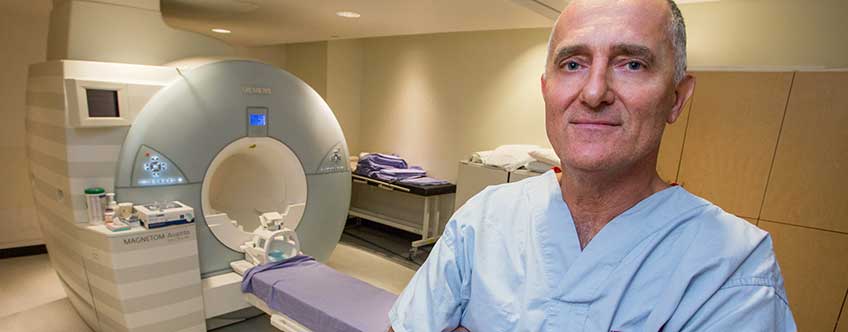To book a Medical Imaging appointment please click here.
The Medical Imaging department joins together several diverse specialties which produce images in distinct ways using very different methods. Specialties include General Radiography, Gastrics, Angiography, Bone Mineral Densitometry, Computed Tomography, Mammography/Ontario Breast Screening Program, Ultrasound, Nuclear Medicine, and Magnetic Resonance Imaging.
We have highly specialized equipment and staff trained and licensed to practice in each subspecialty in order to ensure that your physician is able to provide a clear and accurate diagnosis.
If there is a chance that you may be pregnant and/or you are breastfeeding, please inform the technologist and your physician prior to your specific test.
Below you will find a brief description of a few of the many tests we perform. Please see your physician for specific instructions pertaining to your individual exam and to answer questions regarding your results.
Visit the for more details on radiology medical services.
Film Library
If you require a copy of your image results our Diagnostic Imaging Film Library would be happy to assist you. Please call 519-372-3927.
General Radiography (X-ray)
Radiographs are pictures that are taken of internal structures of the body by x-rays passing through to a digital cassette. Common studies include x-rays of the bones, chest, and abdomen. You may be asked to change into a patient gown and be asked to wear a lead apron for protection.
Gastrics
This type of exam takes internal pictures of the gastrointestinal system (GI tract). Studies may include barium swallows, barium enemas, and small bowel examinations. You may be asked to swallow different types of drinks or be given a liquid that helps the viewer see the organs in question. You may be asked to not eat or drink or be given special preparation instructions by your physician prior to your exam day.
Angiography
Interventional radiology (or angiography) performs a variety of diagnostic and therapeutic examinations including the study and treatment of blocked blood vessels, the insertion and maintenance of oncology & dialysis lines, PICC line insertions, organ biopsies, and pain localization and management.
Your physician will instruct you regarding necessary blood work and/or anticoagulant medications (ex. Coumadin or ASA). You may be asked to not eat or drink prior to your exam day. You may also be injected with a liquid that allows the radiologist to visualize vessels and/or specific organs. Questions and concerns can be answered by your physician.
Bone Mineral Densitometry (BMD)
BMD uses a very low dose x-ray instrument to measure the bone mineral content. BMD studies identify patients with, or who potentially will have, low bone mineral density (osteoporosis). Treatment can then occur which will aid in the prevention of fractures.
Computed Tomography (CT)
A CT scan produces a series of images that can detect many conditions that are not seen with conventional x-rays. During the study a thin beam of radiation is focused on the specific body part to be studied. The x-ray tube moves around this body part as the table moves the patient through the scanner. This creates multiple cross sectional images.
CT exams are very sensitive to motion so the patient must hold completely still. Some CT scans require the use of a contrast media in the form of a drink or an IV injection. You may be in the department for up to 2 hours depending on the body part that is being imaged. The contrast media helps to outline blood vessels and organs so they can be easily seen.
Your physician will provide you with instructions regarding necessary blood work and they may request that you do not eat or drink anything prior to your CT exam. Please call your doctor for details regarding your own specific CT exam.
Brightshores offers services for self-referral breast exams through OBSP. Please call 519-376-8637 to determine eligibility for self-referral, to book an appointment, or for more information regarding the Ontario Breast Screening Program.
A mammogram is an x-ray of the breast which is most commonly used as a screening device for early detection of breast disease. Many patients have their first screening mammogram in their 40s. Patients participating in screening for breast cancer should be screened with Mammography every 2 years.
You will be changed into a mammography gown so please wear a 2 piece outfit. Also please refrain from using deodorant or talcum powder prior to your mammogram.
The breast is compressed to be able to see breast structures optimally. The goal of mammography is to visualize all the breast tissue to ensure the patient receives a thorough examination.
Please allow a minimum of 60 minutes for your appointment.
Please also be advised that you may find the magnet to be claustrophobic. If required, any oral sedation must be provided by your physician so please make prior arrangements as this is not provided by the hospital.
MRI scans can provide information about the brain, spine, joints, organs and vessels. MRI can also show differences in tissues that may not be visible with other types of imaging exams. Some magnetic resonance examinations require an injection of contrast to see structures more clearly. Your doctor may also request that you refrain from eating or drinking anything prior to your study. MRI exams can last from 30-90 minutes and you will be asked to lie perfectly still when the images are being taken. Please call your physician for details regarding your own specific MRI exam.
Patient Preparation for Imaging Tests
Requisitions & Checklists
*Please Note: Requisitions, checklists and how-to videos are for physician office use only and can be accessed here.
Videos
Please click here to access the SW LHIN Medical Imaging Integrated Care training videos.
PocketHealth
Brightshores Health System patients can now view, store and instantly share their medical imaging and reports with PocketHealth! With just a few clicks, securely access your imaging records from anywhere, on any device.
To access your records for FREE:
- Go to pockethealth.com/brightshores to request your records.
- Once your records are ready to view, you’ll receive an email from PocketHealth with a secure link.
- Instantly download or share your records.
- Receiving physicians can then easily view or import these images in full diagnostic quality with no software or account set-up needed.
Have a question?
Please call PocketHealth directly at 1-855-381-8522 or email help@pocket.health

